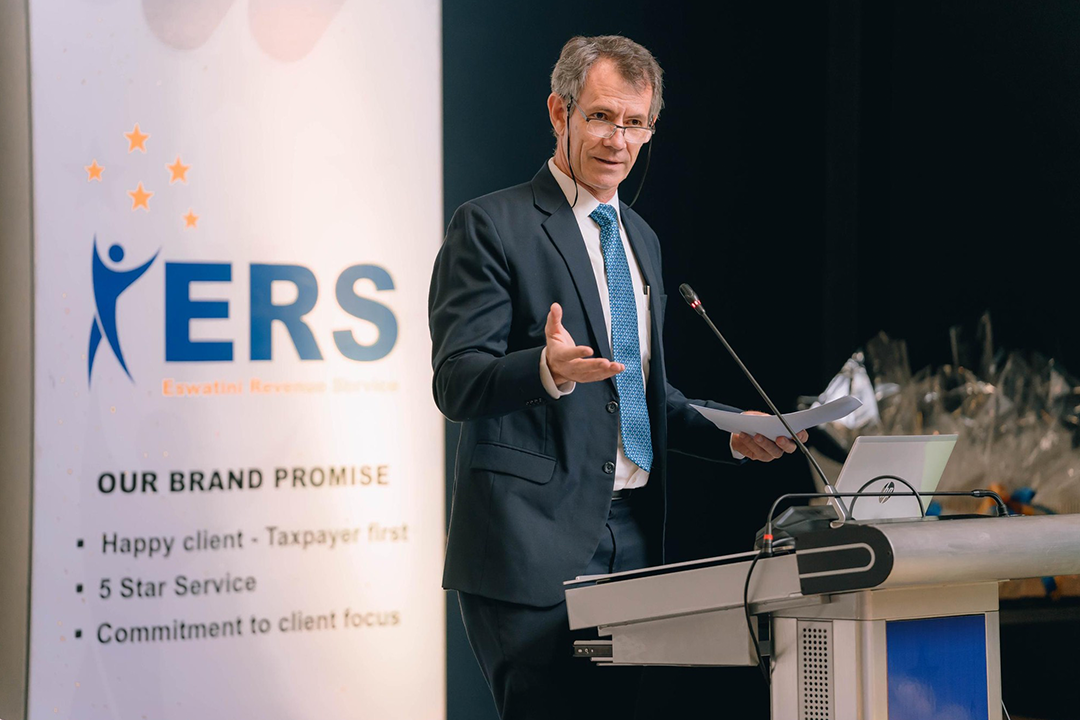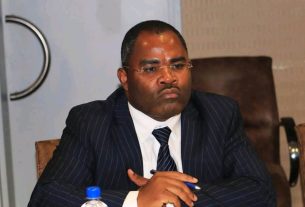BY MBONGENI NDLELA
EZULWINI – Eswatini’s economic future looks brighter following key highlights at the ERS Digitalisation Roadmap Symposium held at the Eswatini Revenue Service (ERS) Headquarters on Wednesday, 11 December 2024.
The Minister of Finance Neal Rijkenberg, opened the symposium with a series of noteworthy announcements and reflections on Eswatini’s progress in fiscal management, tax reforms, and digitalisation efforts to modernise the country’s revenue collection systems.
Rijkenberg celebrated Eswatini’s recent credit rating upgrade to B2 Stable by Moody’s. He noted that the upgrade is a critical milestone that signals to investors Eswatini’s improving financial stability and economic health.
“This achievement reflects our commitment to fiscal discipline, policy resilience, and economic reforms. It sends a powerful message to global investors that Eswatini is a land of opportunity,” said Rijkenberg, acknowledging the efforts of stakeholders across sectors.
The minister added that the rating aligns with His Majesty’s “Nkwe for growth” vision, which calls for innovative and sustainable economic pathways to drive national progress.
Rijkenberg also highlighted significant changes brought by the recent Income Tax Order amendments, which took effect on 1 July 2024.
Key among these reforms is the reduction of Corporate Income Tax to 25%, a move designed to stimulate economic growth by easing the financial burden on businesses and encouraging tax compliance.
He said in addition, the introduction of the Presumptive Tax regime aims to incorporate small and medium enterprises (SMEs) into the tax framework.
SMEs, described as the backbone of Eswatini’s economy, will benefit from simplified tax processes, promoting equity and inclusivity in revenue collection.
“These amendments are a win-win: they enhance revenue collection while fostering a competitive environment for businesses to thrive,” the Minister remarked.
The symposium focused on the pivotal role of digitalisation in modernising tax administration.
Rijkenberg commended the ERS for its commitment to streamlining revenue collection through data-driven digital solutions, which align with His Majesty’s broader vision for economic transformation.
The Minister outlined the ongoing ERS initiatives, including:
– Seamless registration for taxpayers,
– Transformed declarations to simplify tax processes,
– Integrated payments to improve efficiency, and
– Smart borders to facilitate trade and compliance.
“Digitalisation is not just about efficiency; it builds trust, transparency, and compliance. These advancements make it easier for businesses and individuals to engage with the tax system,” he added.
Rijkenberg acknowledged the critical role of partnerships, applauding the Minister of ICT, Honourable Savannah Maziya, for her support and collaboration. He emphasised the synergies between the Ministry of Finance and the Ministry of ICT, which are setting the stage for a more connected and digitally inclusive Eswatini.
“Together, we are building a foundation for a smarter future where innovation drives progress,” said Rijkenberg.
In closing, Minister Rijkenberg urged participants to engage actively in discussions, noting that their contributions are essential to advancing Eswatini’s digital transformation journey.
The symposium highlighted the ERS’ commitment to innovation, collaboration, and progress, marking a significant step towards a modern, efficient, and inclusive revenue system that supports Eswatini’s development goals.




